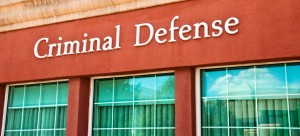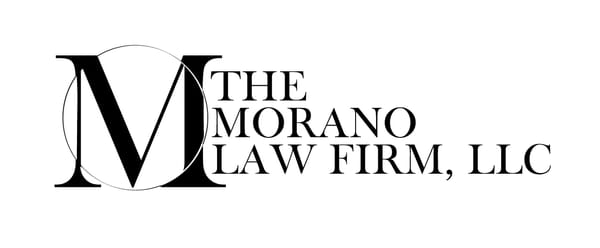If you are a first time offender in New Jersey you need to understand your rights. You may be eligible for what is called a “conditional discharge.”  This is an excellent option for your lawyer to look into in your case. The statute may allow you to enter into a diversionary program specifically developed for first-time offenders in minor drug offenses. The court will hold your records while you enter into a probationary period. If you complete the program, pay the necessary fines your charges will be discharged by the court. Below is the entire statue, but if you are interested in pursuing this option please feel free to contact Corey Morano, Esq. of The Morano Law Firm, LLC at 201-598-5019 or email coreymorano@gmail.com today.
This is an excellent option for your lawyer to look into in your case. The statute may allow you to enter into a diversionary program specifically developed for first-time offenders in minor drug offenses. The court will hold your records while you enter into a probationary period. If you complete the program, pay the necessary fines your charges will be discharged by the court. Below is the entire statue, but if you are interested in pursuing this option please feel free to contact Corey Morano, Esq. of The Morano Law Firm, LLC at 201-598-5019 or email coreymorano@gmail.com today.
2C:36A-1. Conditional discharge for certain first offenses; expunging of records. a. Whenever any person who has not previously been convicted of any offense under section 20 of P.L.1970, c.226 (C.24:21-20), or a disorderly persons or petty disorderly persons offense defined in chapter 35 or 36 of this title or, subsequent to the effective date of this title, under any law of the United States, this State or any other state relating to marijuana, or stimulant, depressant, or hallucinogenic drugs, is charged with or convicted of any disorderly persons offense or petty disorderly persons offense under chapter 35 or 36 of this title, the court upon notice to the prosecutor and subject to subsection c. of this section, may on motion of the defendant or the court:
(1)Suspend further proceedings and with the consent of the person after reference to the State Bureau of Identification criminal history record information files, place him under supervisory treatment upon such reasonable terms and conditions as it may require; or
(2)After plea of guilty or finding of guilty, and without entering a judgment of conviction, and with the consent of the person after proper reference to the State Bureau of Identification criminal history record information files, place him on supervisory treatment upon reasonable terms and conditions as it may require, or as otherwise provided by law.
b.In no event shall the court require as a term or condition of supervisory treatment under this section, referral to any residential treatment  rugfacility for a period exceeding the maximum period of confinement prescribed by law for the offense for which the individual has been charged or convicted, nor shall any term of supervisory treatment imposed under this subsection exceed a period of three years. If a person is placed under supervisory treatment under this section after a plea of guilty or finding of guilt, the court as a term and condition of supervisory treatment shall suspend the person’s driving privileges for a period to be fixed by the court at not less than six months or more than two years unless the court finds compelling circumstances warranting an exception. For the purposes of this subsection, compelling circumstances warranting an exception exist if the suspension of the person’s driving privileges will result in extreme hardship and alternative means of transportation are not available. In the case of a person who at the time of placement under supervisory treatment under this section is less than 17 years of age, the period of suspension of driving privileges authorized herein, including a suspension of the privilege of operating a motorized bicycle, shall commence on the day the person is placed on supervisory treatment and shall run for a period as fixed by the court of not less than six months or more than two years after the day the person reaches the age of 17 years.
rugfacility for a period exceeding the maximum period of confinement prescribed by law for the offense for which the individual has been charged or convicted, nor shall any term of supervisory treatment imposed under this subsection exceed a period of three years. If a person is placed under supervisory treatment under this section after a plea of guilty or finding of guilt, the court as a term and condition of supervisory treatment shall suspend the person’s driving privileges for a period to be fixed by the court at not less than six months or more than two years unless the court finds compelling circumstances warranting an exception. For the purposes of this subsection, compelling circumstances warranting an exception exist if the suspension of the person’s driving privileges will result in extreme hardship and alternative means of transportation are not available. In the case of a person who at the time of placement under supervisory treatment under this section is less than 17 years of age, the period of suspension of driving privileges authorized herein, including a suspension of the privilege of operating a motorized bicycle, shall commence on the day the person is placed on supervisory treatment and shall run for a period as fixed by the court of not less than six months or more than two years after the day the person reaches the age of 17 years.
If the driving privilege of a person is under revocation, suspension, or postponement for a violation of this title or Title 39 of the Revised Statutes at the time of the person’s placement on supervisory treatment under this section, the revocation, suspension or postponement period imposed herein shall commence as of the date of the termination of the existing revocation, suspension or postponement. The court which places a person on supervisory treatment under this section shall collect and forward the person’s driver’s license to the New Jersey Motor Vehicle Commission and file an appropriate report with the commission in accordance with the procedure set forth in N.J.S.2C:35-16. The court shall also inform the person of the penalties for operating a motor vehicle during the period of license suspension or postponement as required in N.J.S.2C:35-16.
Upon violation of a term or condition of supervisory treatment the court may enter a judgment of conviction and proceed as otherwise provided, or where there has been no plea of guilty or finding of guilty, resume proceedings. Upon fulfillment of the terms and conditions of supervisory treatment the court shall terminate the supervisory treatment and dismiss the proceedings against him. Termination of supervisory treatment and dismissal under this section shall be without court adjudication of guilt and shall not be deemed a conviction for purposes of disqualifications or disabilities, if any, imposed by law upon conviction of a crime or disorderly persons offense but shall be reported by the clerk of the court to the State Bureau of Identification criminal history record information files. Termination of supervisory treatment and dismissal under this section may occur only once with respect to any person. Imposition of supervisory treatment under this section shall not be deemed a conviction for the purposes of determining whether a second or subsequent offense has occurred under section 29 of P.L.1970, c.226 (C.24:21-29), chapter 35 or 36 of this title or any law of this State.
c.Proceedings under this section shall not be available to any defendant unless the court in its discretion concludes that:
(1)The defendant’s continued presence in the community, or in a civil treatment center or program, will not pose a danger to the community; or
(2)That the terms and conditions of supervisory treatment will be adequate to protect the public and will benefit the defendant by serving to correct any dependence on or use of controlled substances which he may manifest; and
(3)The person has not previously received supervisory treatment under section 27 of P.L.1970, c.226 (C.24:21-27), N.J.S.2C:43-12, or the provisions of this chapter.
d.A person seeking conditional discharge pursuant to this section shall pay to the court a fee of $75. The court shall forward all money collected under this subsection to the treasurer of the county in which the court is located. This money shall be used to defray the cost of juror compensation within that county. A person may apply for a waiver of this fee, by reason of poverty, pursuant to the Rules Governing the Courts of the State of New Jersey. Of the moneys collected under this subsection, $30 of each fee shall be deposited in the temporary reserve fund created by section 25 of P.L.1993, c.275. After December 31, 1994, the $75 fee shall be paid to the court, for use by the State.
L. 1987, c.106, s.3; amended 1988, c.44, s.12; 1993, c.275, s.14; 2008, c.84, s.1.
If you or anyone you know needs information about a recent drug arrest in New Jersey contact Corey Morano, Esq. of The Morano Law Firm, LLC at 201-598-5019 or email coreymorano@gmail.com today for a free consultation.
